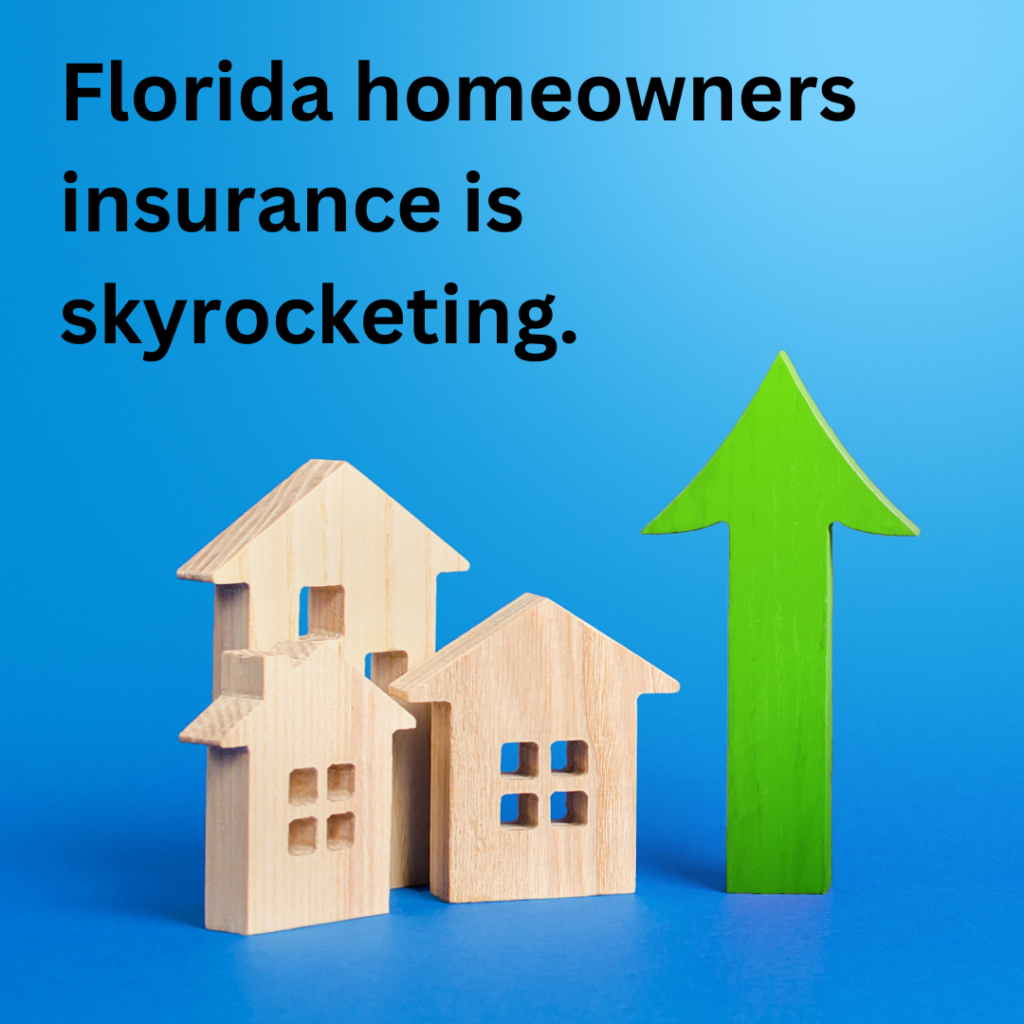Across Florida, homeowners are dealing with costly insurance policies at a time when many have lost trust in their carriers after many dropped the ball on claims dealing with Hurricane Ian damage.
Now, customers are searching for ways to deal with the costs. Some are cutting back on parts of their policies, while others are dropping insurance entirely, or “going bare.” In a drastic move, others are even leaving the state for cheaper, less disaster-prone areas.
Fort Myers resident Priscilla O’Harra, whose home barely was impacted by Hurricane Ian, was dropped by her insurance carrier a year later. She decided not to search for a new policy. Why throw away thousands on a carrier that won’t help her?
“I’m just disgusted,” O’Harra said.
Here’s how much Florida homeowners insurance is going up
Florida property owners already pay more than four times the national average for home insurance, up from triple the national average just last year. The cost of homeowners insurance on average increased more than 40% in the last year.
Three out of four Florida homeowners have seen their homeowner’s insurance increase in the last year, while one in eight saw their policy carrier drop them, a recent survey out of real estate brokerage firm RedFin shows.
High prices are driving people out of Florida
One-third of those who lost coverage moved or plan to move as a result of that, they told RedFin.
Many seniors are leaving for “mid-South states,” such as the Carolinas –– places that have no or low income tax, less significant threat from extreme weather, and a lower cost of housing and insurance, AARP Florida Director Jeff Johnson said.
Some Florida customers are dropping wind to save thousands, but jeopardizing homes
A number of homeowners across Florida told The USA TODAY Network-Florida that they had dropped – or were considering dropping – wind coverage from their insurance policies in order to save money. While it would decrease their annual policy costs, they acknowledged that it could leave them out of luck should a hurricane hit their home.
But, some of them say they think it’s worth trying.
Maurice Gutierrez is one such homeowner. His home in Naples was hit hard in Hurricane Ian and flooded, but he never filed a claim, covering the repair bill himself.
Still, he saw his homeowner’s insurance double the following year, and nearly double again after that.
It just cost too much, he said, so he removed wind from his policy.
“If I save eight grand (a year) for five years?” Gutierrez said. “I can put a roof on twice. And have money left over for new windows.”
High insurance costs are being passed on to renters, too
In Lee County – hardest hit by Hurricane Ian – housing costs surged after the storm destroyed or seriously damaged more than 20,000 structures, displacing thousands into rental units as they waited for their homes to be repaired. And there they have remained.
Rentals still run hundreds of dollars higher a month than the national average. Here, households with an income of less than $87,000 are considered rent-burdened.
While the cost of rentals has dipped across the country, in Lee and other storm-vulnerable parts of Florida, rents have remained high because of costly property insurance, Johnson said. Apartment owners have had to pass these costs on to their renters in the form of higher rent, pushing tenants out or pushing seniors back into the workforce, he added.
What are legislators doing?
The GOP-led legislature has tightened the noose around customers in the last five years, repeatedly making it harder and harder for customers to sue their insurance carriers. They say that frivolous lawsuits against carriers have artificially inflated Florida’s insurance policy costs.
But the data only somewhat bears that out.
An Office of Insurance Regulation January analysis of insurance claims found most claimant lawsuits came only after carriers delayed payment to policyholders, sometimes by more than a year.
This suggests carriers’ own delays may have triggered the lawsuits.
Some, though, say Florida isn’t regulating its insurance market appropriately.
Doug Quinn, executive director of industry watchdog group American Policyholder Association, told The News-Press / Naples Daily News the real reason behind the high premiums is mismanagement: insurance companies don’t hold enough cash in reserve to pay out claims.
Then, when hurricane season devastates their policyholders, they fold, he said.
Kate Cimini is the Florida Investigative Reporter for the USA TODAY-Network Florida, based at The News-Press and The Naples Daily News. Contact her at 239-207-9369 or kcimini@news-press.com.
This article originally appeared on Palm Beach Post: Florida homeowners insurance is skyrocketing: Here’s what to know






